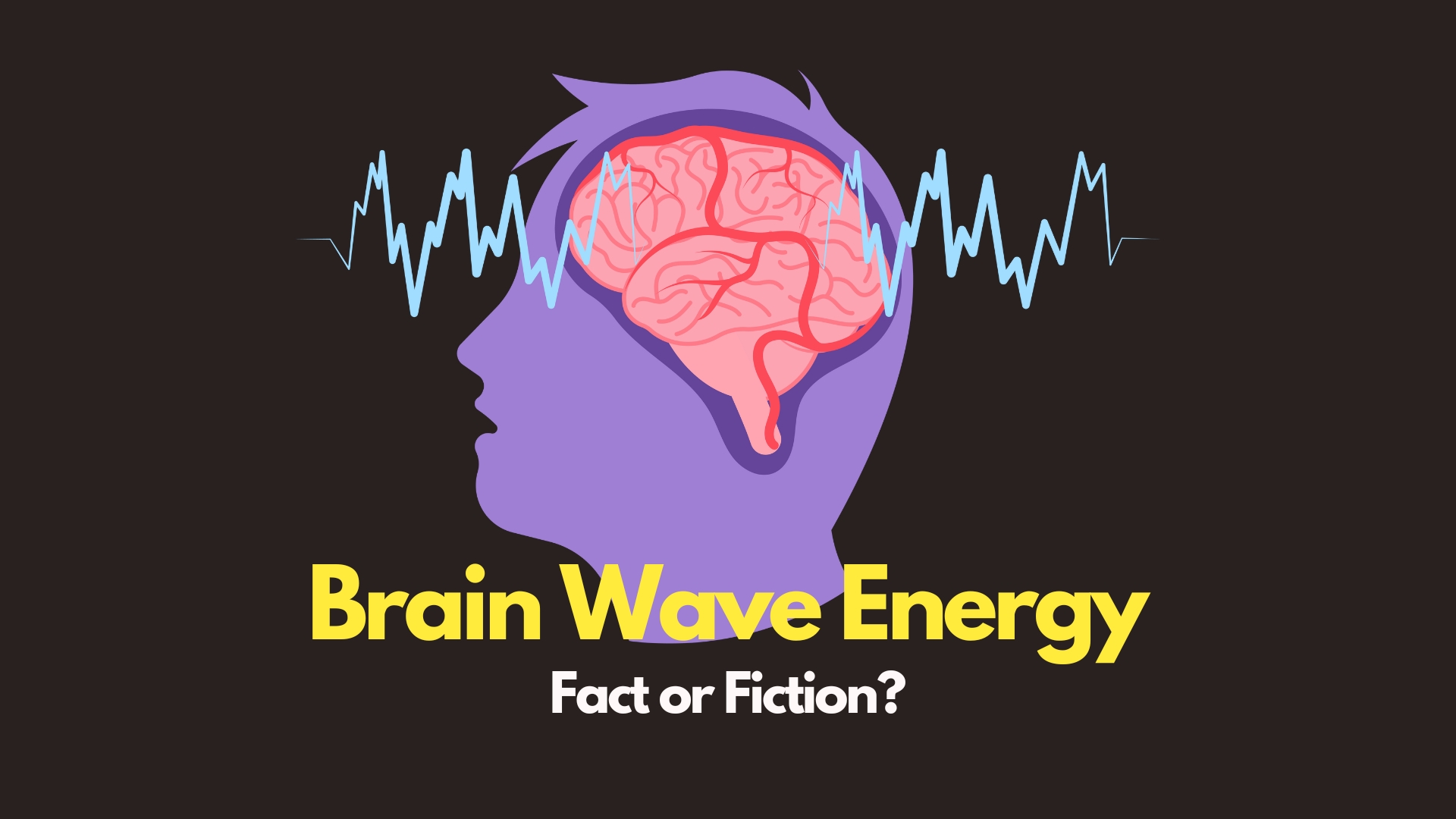Published
- 5 min read
The Energy of Brain Waves: Fact or Fiction?

Introduction
The human brain, a marvel of biological engineering, is an enigma that scientists are still working to decipher. Among the most intriguing aspects of brain activity are brain waves, mysterious electrical patterns that have captivated the scientific community for decades. But what are these brain waves made of? Specifically, is it accurate to describe them as a form of energy? This article dives deep into this captivating subject, scrutinizing scientific evidence, dismantling common myths, and examining practical applications that extend from the hospital to your meditation cushion.
What Are Brain Waves?
The Basics
Neurons: If the brain is a complex electrical circuit, then neurons are its wires. These specialized cells are designed to transmit information throughout the body, not just within the brain.
Oscillation: Oscillation in brain waves is like the tide—coming in and going out in a rhythmic pattern. These oscillations are the combined effect of neurons firing in sync, producing electrical patterns that can be measured and analyzed.
Types of Brain Waves
The brain is like an orchestra, with each type of wave playing a different role in your mental state.
- Alpha Waves: Imagine sitting by a calm lake, reflecting on your thoughts—that’s where alpha waves shine. They are prominent when you’re in a relaxed state but still alert.
- Beta Waves: Picture yourself in a high-stakes debate. Your mind is racing, actively juggling points and counterpoints. This mental gymnastics is facilitated by beta waves.
- Delta Waves: Imagine a bear in hibernation. Delta waves dominate during the deepest phases of your sleep, helping the body to heal and grow.
- Theta Waves: These waves are the background music during moments of daydreaming or light sleep.
- Gamma Waves: Think of a supercomputer processing vast amounts of data in nanoseconds. Gamma waves are involved in high-level cognitive functions like problem-solving and perception.
Exploring the Question: Are Brain Waves Energy?
The Intricacies of Energy in Physics
Defining Energy
Energy, in the realm of physics, is a rather complex entity despite its simple definition as the ability to do work. It’s essential to differentiate between various forms of energy, such as kinetic (energy of motion), thermal (energy of heat), chemical (energy stored in molecular bonds), and electrical (energy due to electric charge).
Unit of Measurement
Electrical energy is typically measured in joules. This unit can quantify the energy carried by a single electron as it moves through an electrical potential difference (voltage).
Applicability to Brain Waves
The immediate question that arises is whether the concept of joules can be applied to brain waves, which are essentially oscillations of voltage across neural membranes. The answer is both yes and no. While they do carry electrical energy, the amount is minuscule and localized within the brain’s complex neural network.
The Scientific Angle: A Multi-Dimensional Perspective
Electrical Oscillations
Brain waves are oscillations of voltage across neuronal membranes. When neurons ‘fire,’ they create an electrical impulse that travels along neural pathways. These impulses are the ‘waves’ that we measure, and they do indeed carry energy. However, the amount is extremely minute—on the order of microjoules or even nanojoules.
The Role of Neurotransmitters
Beyond the electrical dimension, brain waves are also modulated by neurotransmitters like dopamine, serotonin, and glutamate. These neurotransmitters carry chemical energy and influence the amplitude and frequency of brain waves. This adds another layer of complexity to the simple notion of brain waves as just ‘electrical energy.‘
Interplay of Electrical and Chemical Energy
The fascinating part is the dynamic interplay between electrical and chemical forms of energy in the brain. Neurotransmitters can influence the electric potential across neural membranes, thereby affecting the amplitude and frequency of brain waves. Conversely, the electrical activity of neurons can influence the release of neurotransmitters.
Complexity and Controversies
Some theories even suggest that brain waves could be influenced by quantum phenomena, although this is still a topic of ongoing research and debate. These theories postulate that the energy carried by brain waves may also involve quantum-level interactions, adding yet another dimension to an already complex subject.
Scientific Evidence
Studies and Research
- EEG Measurements: An EEG scan can pick up the electrical activity of the brain, giving us the amplitude and frequency of brain waves. But translating this into a quantifiable ‘energy’ measure is complex and not straightforward.
- Quantum Mechanics: There are even theories in quantum mechanics suggesting that microscopic quantum events could play a role in brain activity.
Conflicting Opinions
The world of science is filled with debates, and this subject is no exception. Some researchers argue that brain waves are a form of bioelectrical energy. Others, however, believe that this is an oversimplification, as brain waves are influenced by a host of other factors like neurotransmitter levels and existing neural networks.
Did You Know?: Your brain, which accounts for only about 2% of your body weight, consumes a whopping 20% of your body’s energy!
Common Misconceptions
- Brain Waves Are Pure Energy: This is a simplified view. Brain waves are an intricate blend of electrical activity and biochemical processes.
- Brain Waves Can Be ‘Charged’: Some alternative medicine practices claim that you can ‘charge’ your brain waves to improve health. Scientifically, this is unsupported.
Practical Applications
Medical Uses
Brain waves have medical implications that extend beyond mere academic interest. They are used in diagnosing various neurological conditions, from epilepsy to other forms of neural dysfunction.
Everyday Applications
In the realm of mental health and wellness, the study of brain waves has led to the development of various techniques designed to manipulate these waves for beneficial outcomes, such as improved focus and relaxation. However, the efficacy of these techniques is still under scrutiny.
Conclusion
Brain waves are a fascinating blend of electrical and chemical activity, making them far more complex than just ‘energy waves.’ They serve as a gateway to understanding the intricate workings of the human brain, a subject that continues to captivate scientists and laypeople alike.